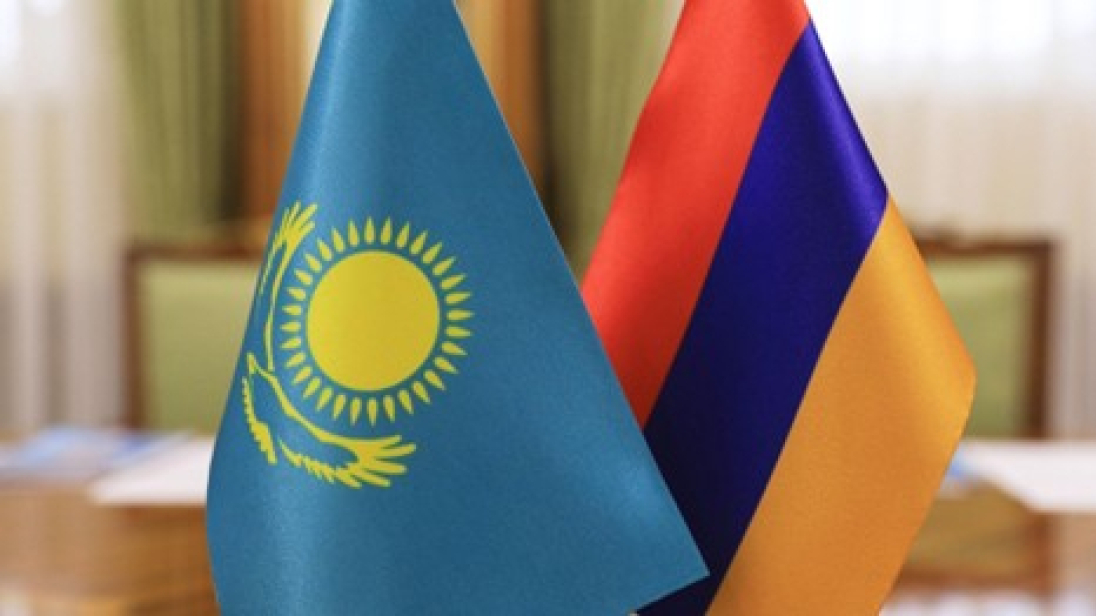At least 25 National Guard killed after Mexican drug lord’s death
At least 25 members of Mexico's National Guard have died during a wave of violence in the state of Jalisco after the killing of a drug lord, the count...

Kazakhstan has completed the ratification of a migration cooperation agreement with Armenia, marking a new phase in simplifying cross-border movement between the two nations.
The law has now been officially signed by President Kassym-Jomart Tokayev, as confirmed by the presidential press service, Akorda.
Under the newly ratified agreement, citizens of both Kazakhstan and Armenia are now entitled to visa-free stays of up to 90 days on each other's territory.
A significant feature of the agreement is that Kazakh nationals no longer require an international passport to travel to Armenia; an internal ID card will suffice.
The same rule applies to Armenian citizens entering Kazakhstan, who will be able to present their national identification card at the border.
Previously, such travel arrangements without passports were limited to Russia and Kyrgyzstan, making the agreement with Armenia a notable extension of the simplified migration regime within the Eurasian Economic Union (EAEU). While citizens of EAEU member states - Kazakhstan, Armenia, Russia, Belarus and Kyrgyzstan - already benefit from facilitated travel, this bilateral agreement provides formal clarity and legal reinforcement for Kazakh-Armenian movement.
Kazakhstan and Armenia also agreed to share information about citizens residing in each other's territory, as well as about violations of migration laws.
Furthermore, the two sides have committed to jointly combating illegal migration and addressing issues related to dual citizenship, while also exchanging relevant legal and regulatory information.
The new arrangement introduces stricter controls over the length of stay. As explained by Kazakhstan’s Minister of Internal Affairs, Yerzhan Sadenov, although the 90-day visa-free rule remains in effect, foreign visitors will now be required to register with local authorities after 30 days in the country.
This measure is intended to strengthen migration oversight, particularly given that nearly 12 000 Armenian nationals have entered Kazakhstan since the start of the year.
Armenia's parliament ratified the agreement earlier, on 11 September 2025, allowing both countries to complete their respective internal legislative processes.
In Kazakhstan, the document passed through the Parliament before receiving final approval from the president.
It is worth noting that the 90-day visa-free period is not a new feature in Kazakhstan’s migration policy.
The country has similar agreements with several other states.
However, the agreement with Armenia formalises the framework and makes travel conditions more transparent and predictable for citizens of both nations.
A seven-month-old Japanese macaque has drawn international attention after forming an unusual bond with a stuffed orangutan toy after being rejected by its mother.
Divers have recovered the bodies of seven Chinese tourists and a Russian driver after their minibus broke through the ice of on Lake Baikal in Russia, authorities said.
Iran announced on Saturday (21 February) that it has designated the naval and air forces of European Union member states as “terrorist entities” in a reciprocal move after the EU blacklisted the Islamic Revolutionary Guard Corps (IRGC).
Pakistan said it carried out cross-border strikes on militant targets inside Afghanistan after blaming a series of recent suicide bombings, including attacks during the holy month of Ramadan, on fighters it said were operating from Afghan territory.
President Donald Trump said on Saturday (21 February) that he will raise temporary tariffs on nearly all U.S. imports from 10% to 15%, the maximum allowed under the law, after the Supreme Court struck down his previous tariff program.
Central Asia’s population could reach 96 million by 2040, according to the head of the Eurasian Development Bank (EDB), highlighting both the region’s economic potential and the growing strain on infrastructure, trade routes and long-term development models.
Azerbaijani President Ilham Aliyev on Monday discussed transport links, infrastructure projects and broader economic cooperation with a high-level Iranian delegation led by Roads and Urban Development Minister Farzaneh Sadegh.
Iran has signed a secret €500 million arms deal with Russia to rebuild air defences, weakened during last year’s war with Israel, the Financial Times has reported. The agreement, signed in December in Moscow, will see Russia deliver 500 Verba launch units and 2,500 9M336 missiles over three years.
Syria has secured a $50 million financing package from the World Bank to support transport infrastructure projects as the country advances its economic recovery efforts, Syrian media reported on Sunday.
The United States and Iran will hold a new round of nuclear negotiations in Geneva on Thursday as part of renewed diplomatic efforts to reach a potential agreement, Oman’s Foreign Minister Badr Albusaidi announced on Sunday.
You can download the AnewZ application from Play Store and the App Store.

What is your opinion on this topic?
Leave the first comment